Poems worksheets activities for Ages 3-9
13 filtered results
-
From - To
Explore our engaging and versatile poems worksheets designed specifically for children ages 3-9! Our activities promote creativity and language development through vibrant, interactive poetry exercises. Perfect for classrooms or at-home learning, these worksheets inspire young learners to express themselves while enhancing their understanding of rhythm, rhyme, and vocabulary. From simple guided activities to imaginative prompts, children will love diving into the world of poems. Each worksheet encourages reading comprehension and fosters a love for storytelling, making learning both fun and effective. Discover a range of themes that will captivate young minds and ignite their passion for poetry today!


Rhymes in Poems Worksheet
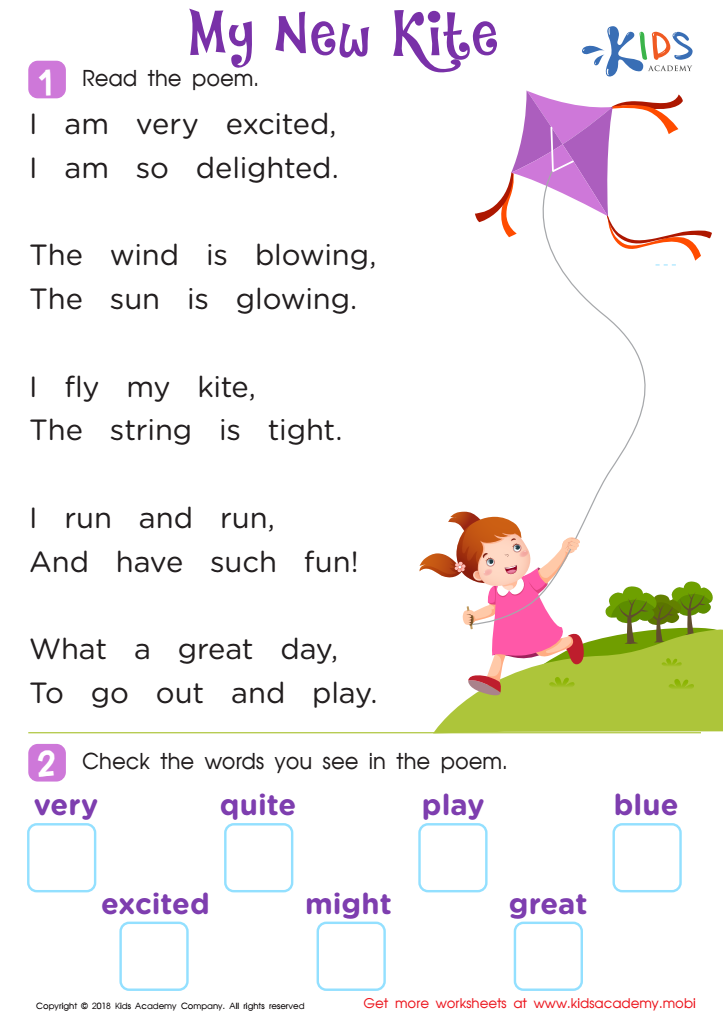

Poem: My New Kite Worksheet


Baa Baa Black Sheep Printable
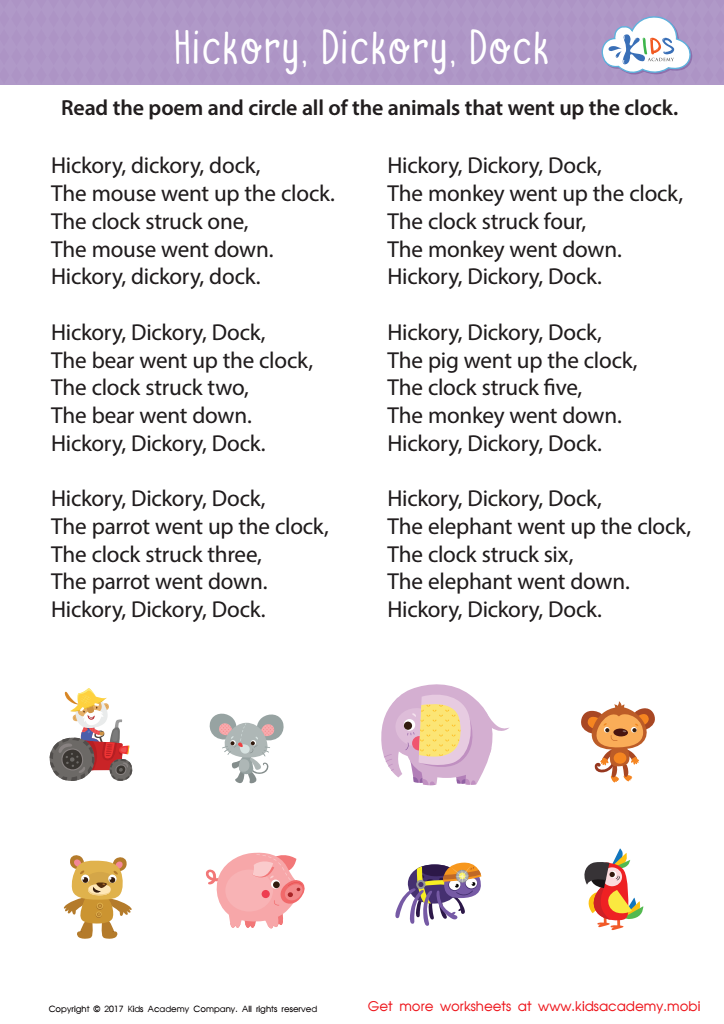

Hickory Dickory Dock Sequencing Worksheet
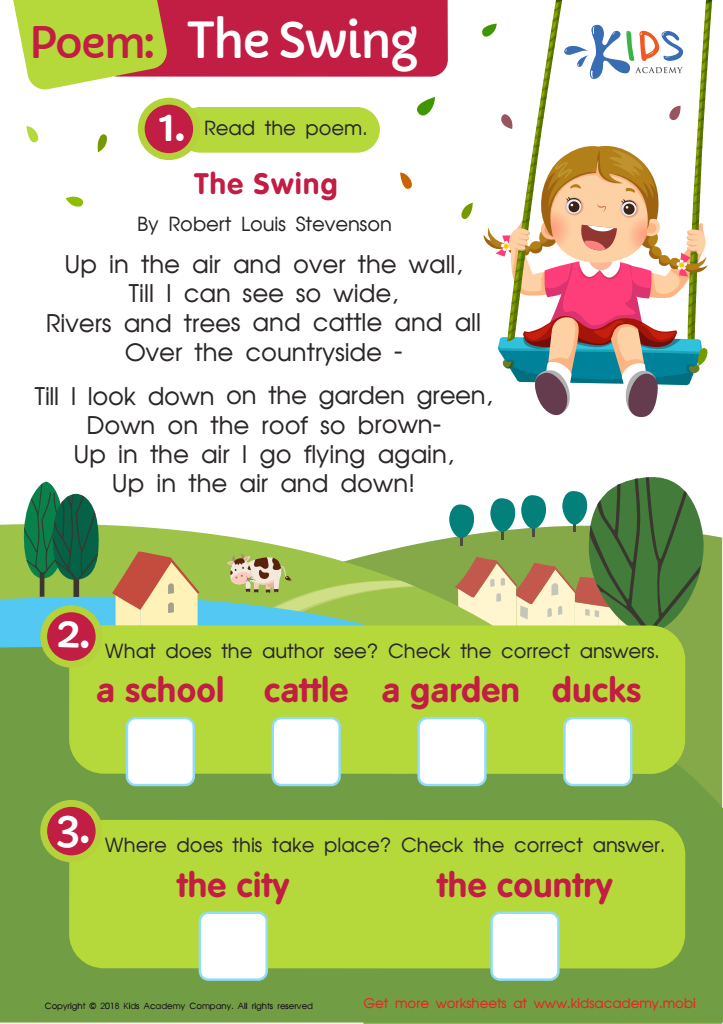

Poem: The Swing Worksheet
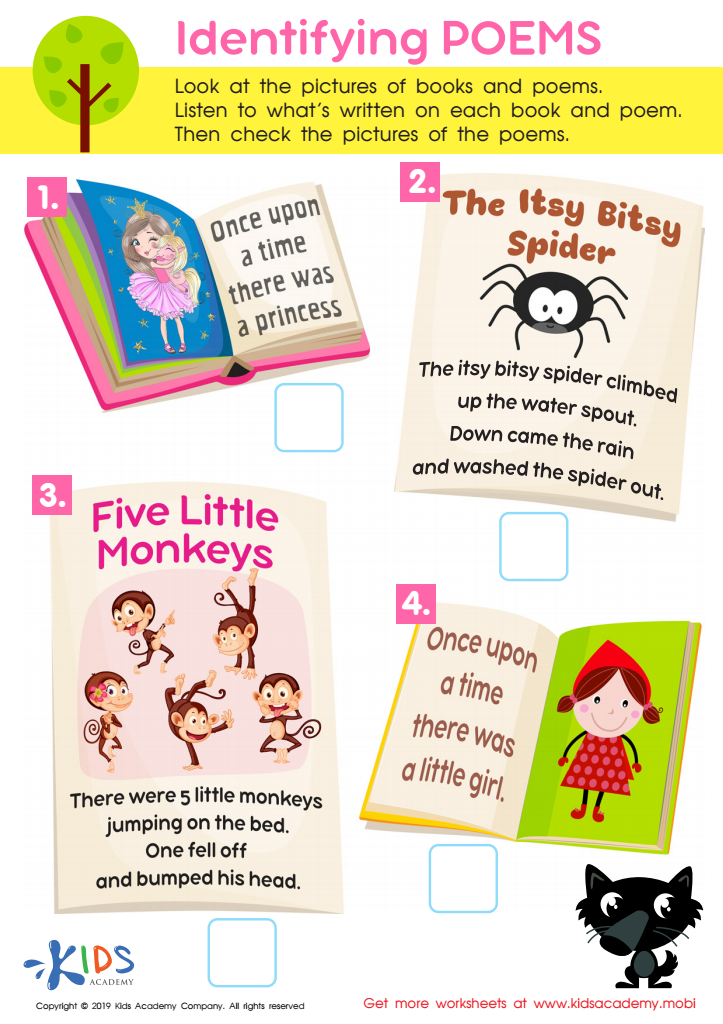

Identifying Poems Worksheet
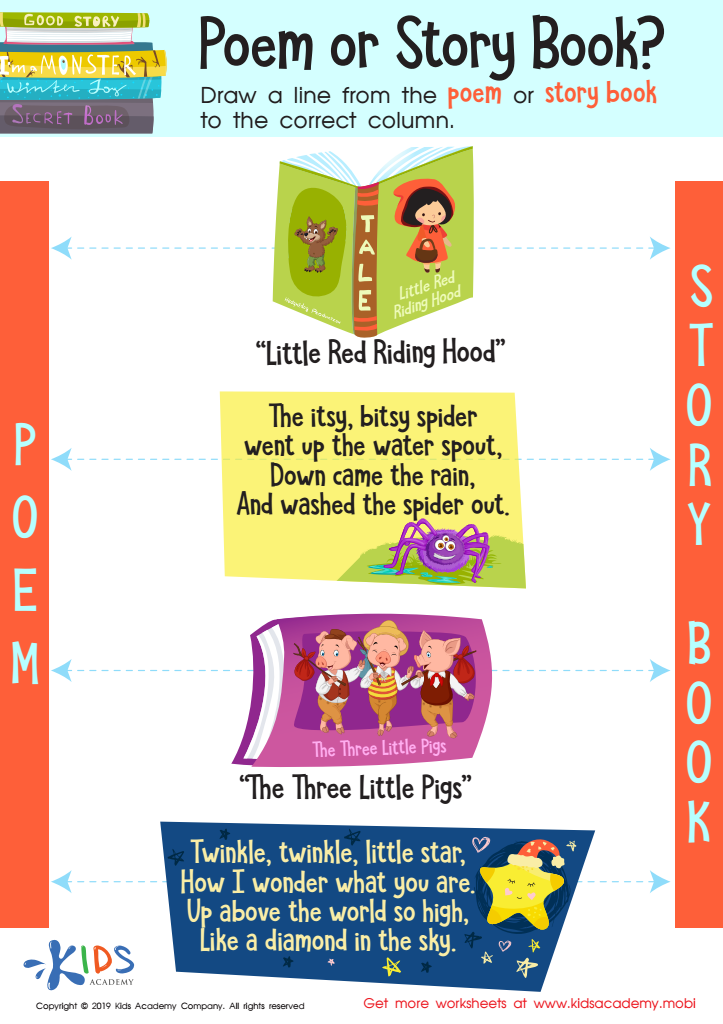

Poem or Story Book? Worksheet
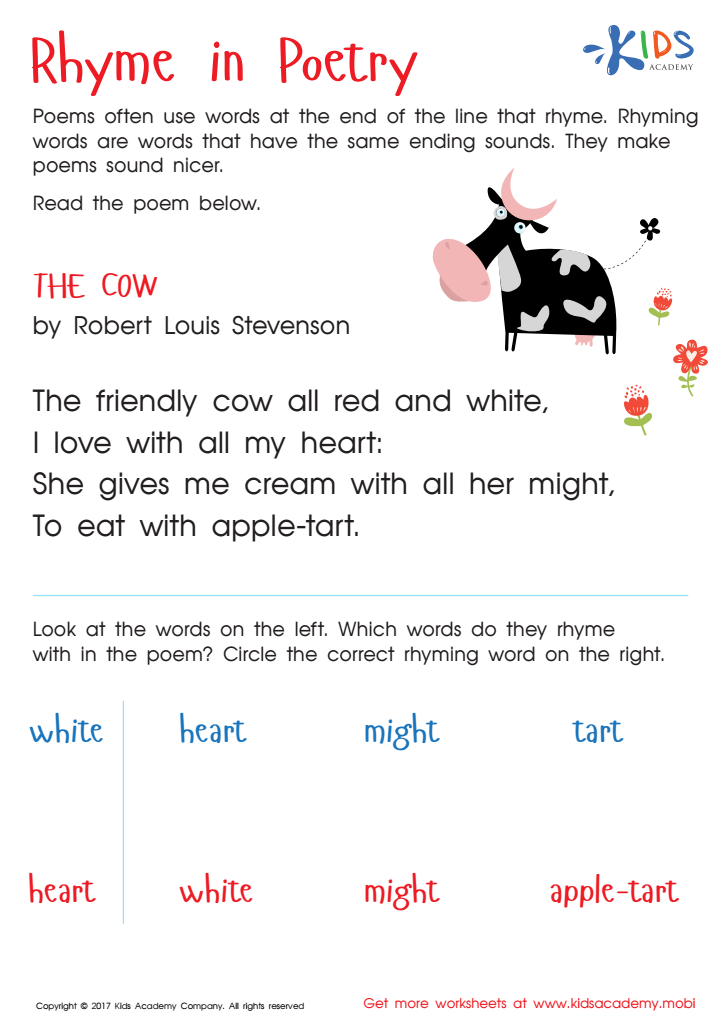

Rhyme In Poetry Worksheet
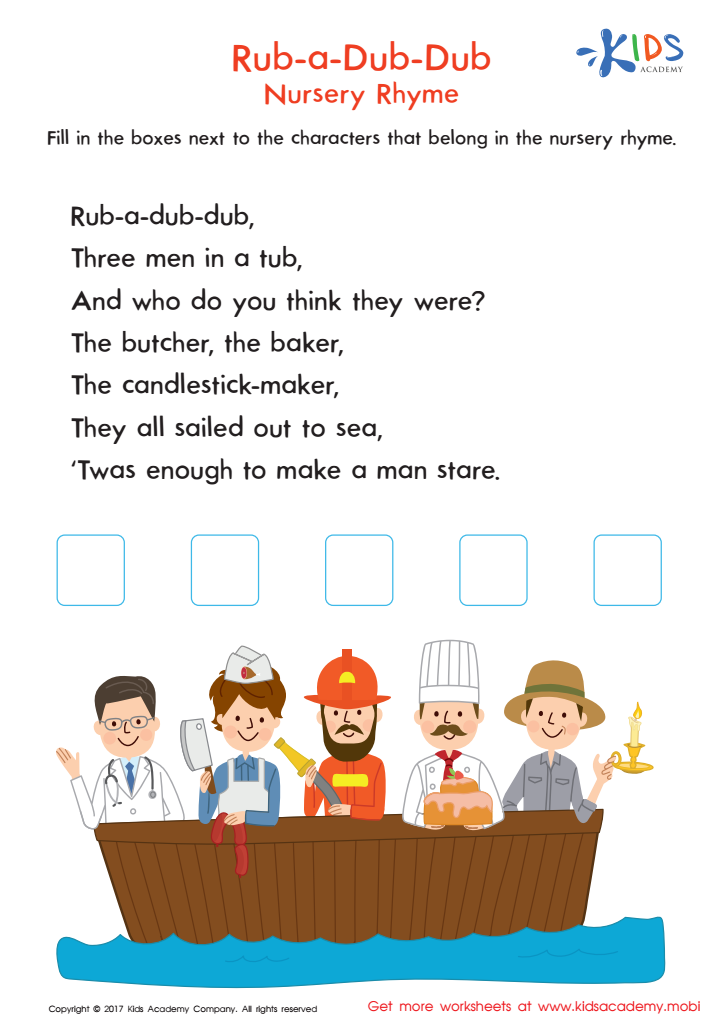

Rub a Dub Dub Printable
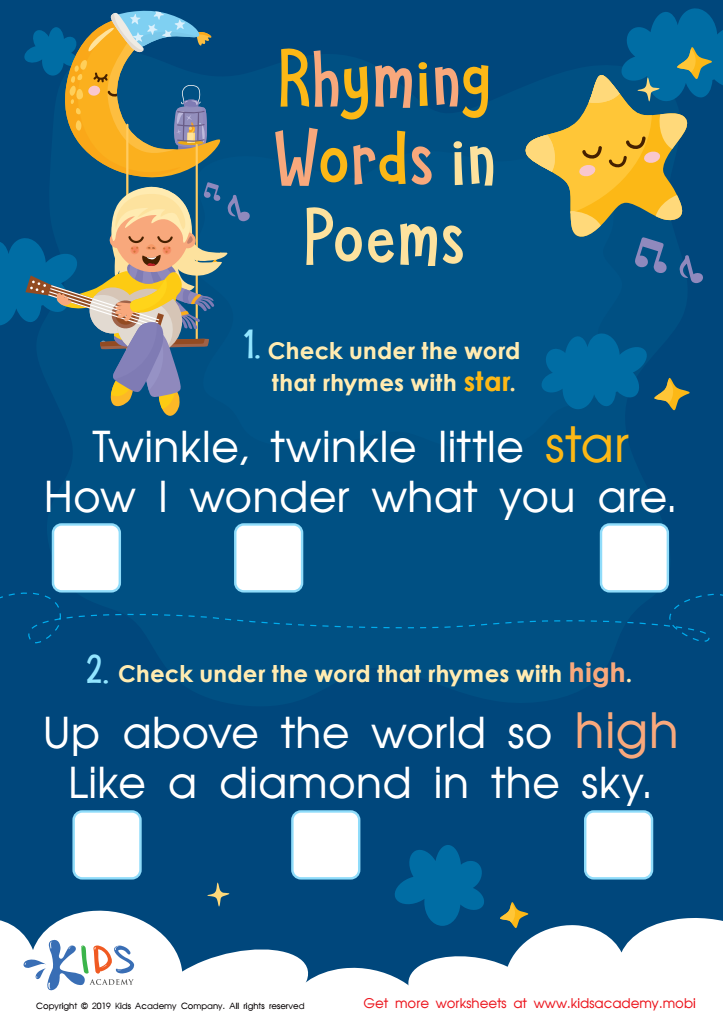

Rhyming Words in Poems Worksheet
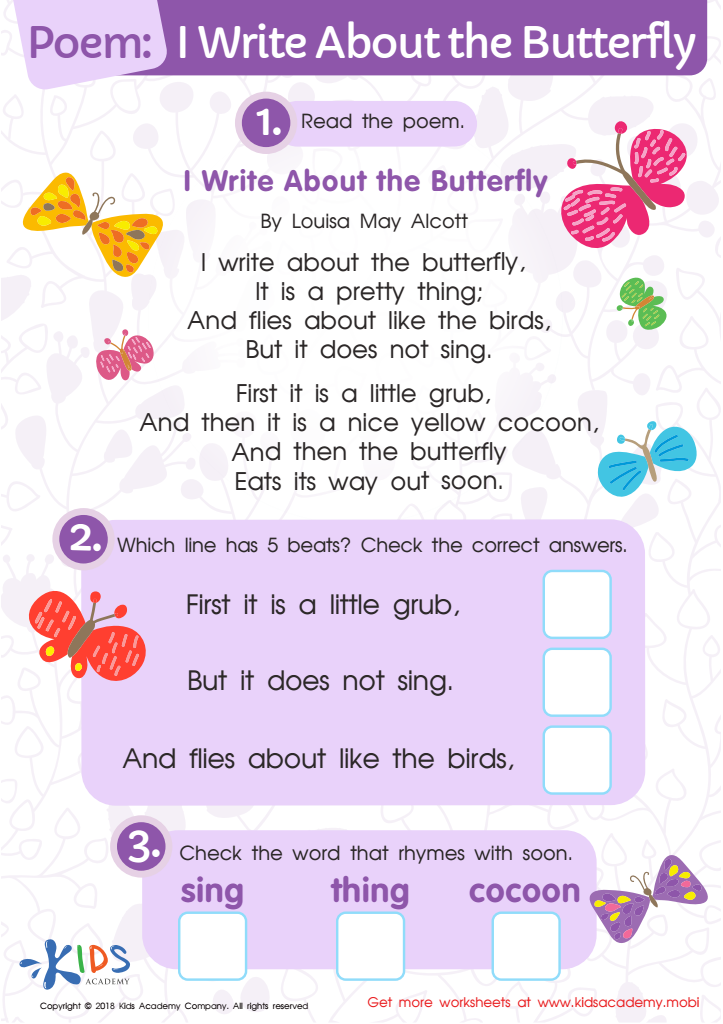

Poem: I Write About The Butterfly Worksheet
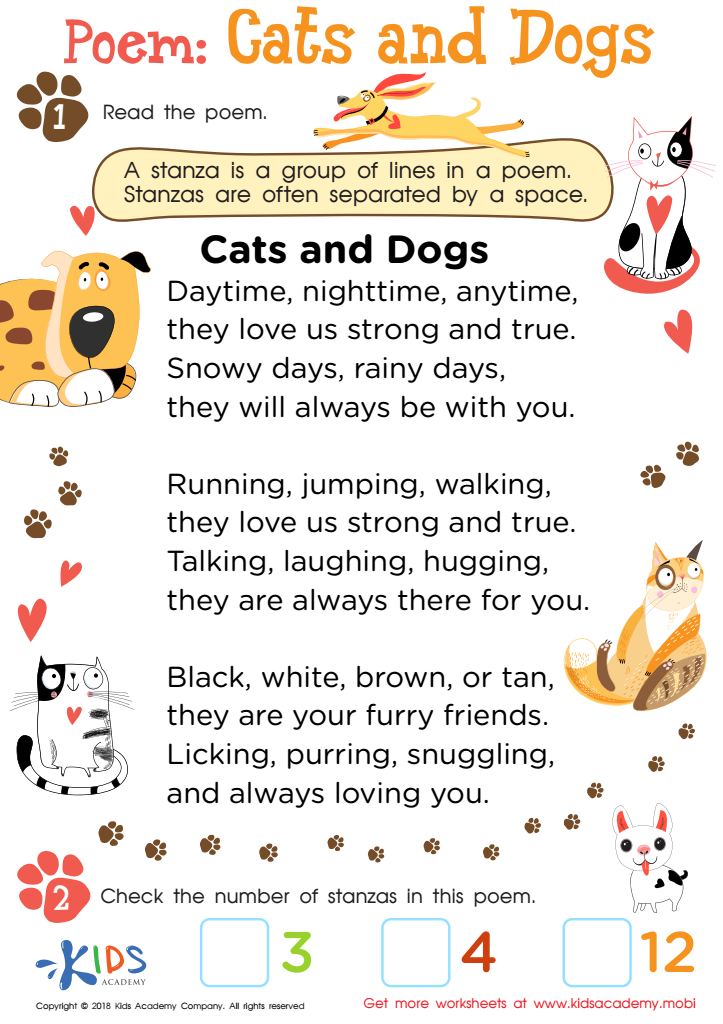

Poem: Cats and Dogs Worksheet
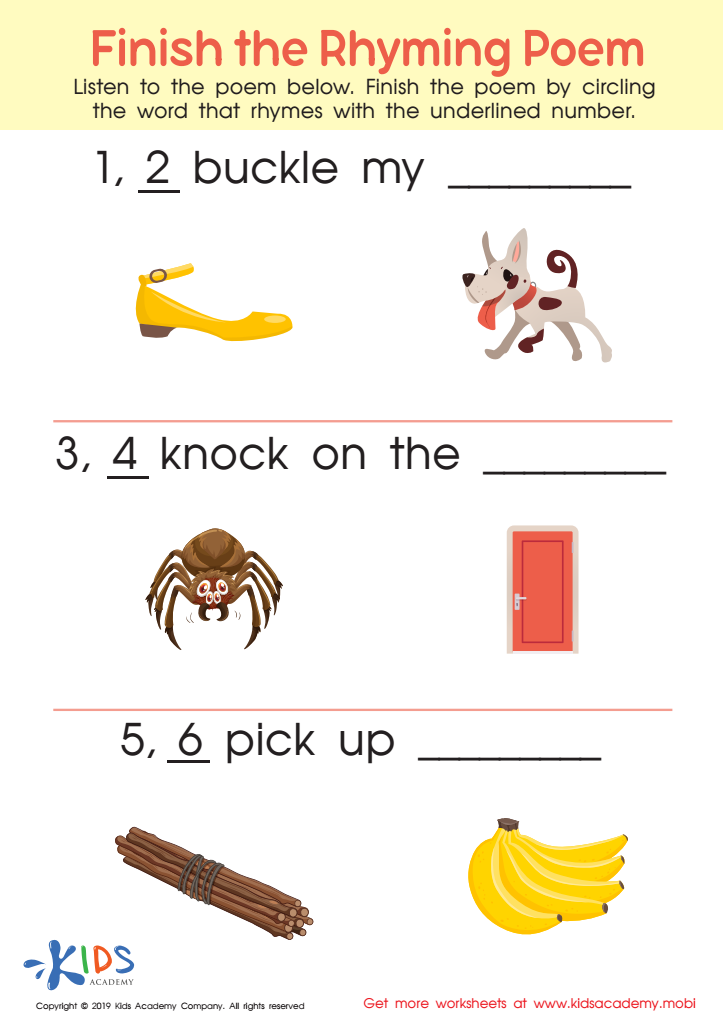

Finish Rhyming Poem Worksheet
Parents and teachers should prioritize poetry activities for children aged 3-9 because these activities significantly enhance language development and creativity. At this age, children are naturally curious and eager to explore sounds, meanings, and rhythms in language. Engaging with poetry helps them develop phonemic awareness, vocabulary, and comprehension skills through fun and interactive experiences.
Moreover, poetry encourages imaginative thinking, allowing children to express their emotions and thoughts creatively. By using rhythm and rhyme, poetry activities also improve auditory discrimination skills and memory, which are essential for reading comprehension and language fluency later on.
Additionally, poetry promotes cultural awareness and emotional intelligence as children encounter diverse themes and perspectives, helping them understand the world around them. Sharing poems can foster a sense of community and partnership between parents, teachers, and children as they explore themes together, thus strengthening bonds.
Incorporating poetry into everyday activities, such as reciting nursery rhymes or creating simple verse, not only enriches a child's linguistic skills but also fosters a love for reading and literature from an early age. This love for language can lead to lifelong engagement with reading and creativity, reinforcing the importance of incorporating poetry into early education frameworks.
 Assign to My Students
Assign to My Students





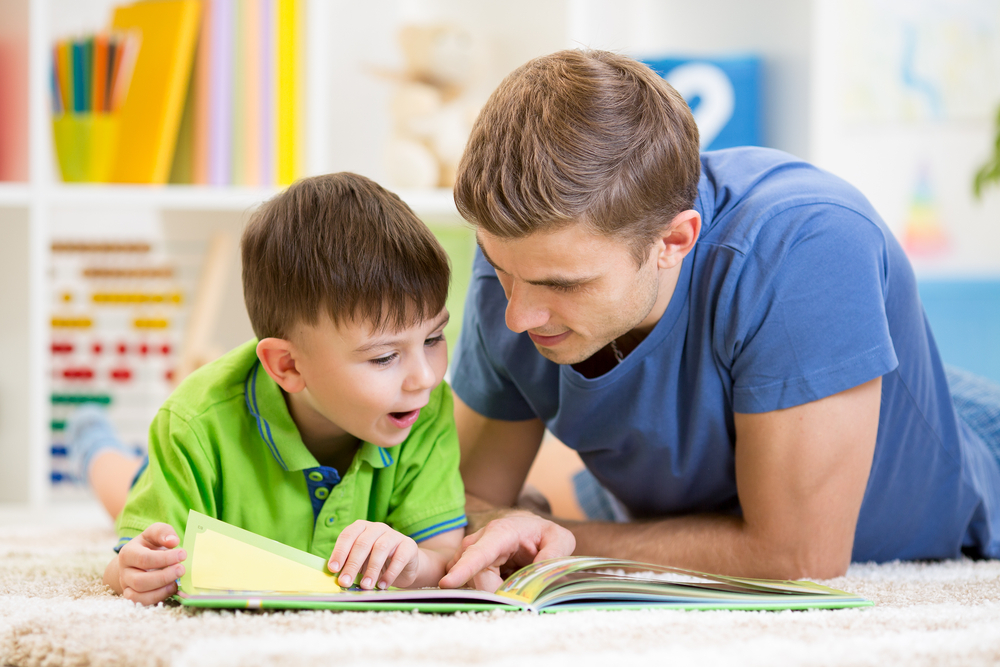


.jpg)










